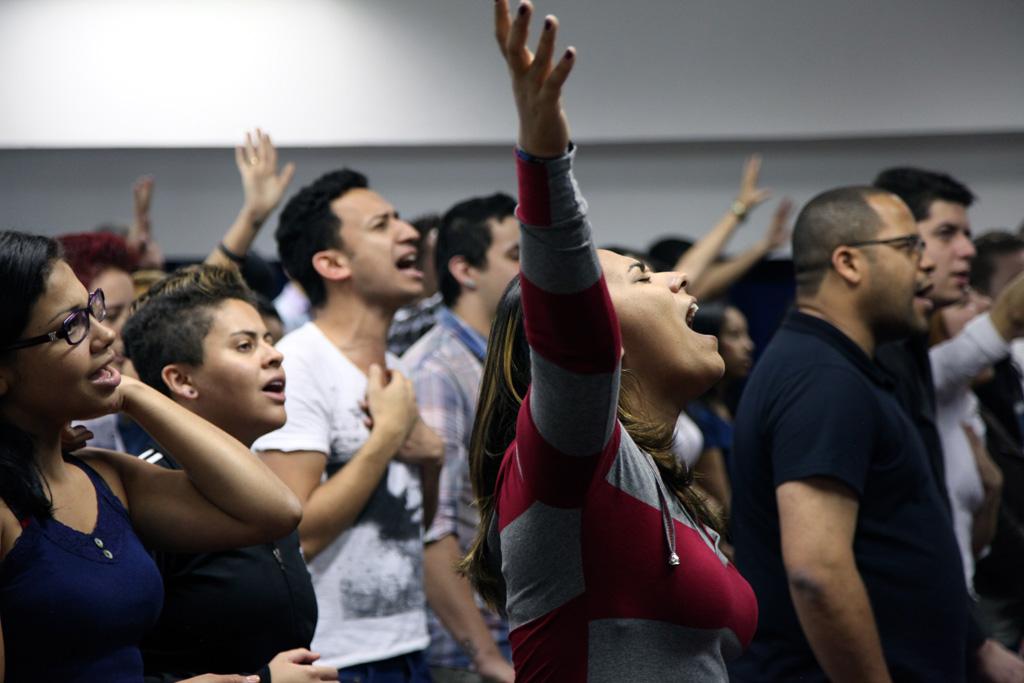LGBT-inclusive Pentecostal churches growing in Brazil
Cidade de Refugio (City of Refuge) is a newly minted Brazilian LGBT-inclusive movement. It pushes youthful worshipers to find partners and refrain from many of the activities that tend to attract young gays and lesbians in Brazil’s increasingly cosmopolitan cities.
RIO DE JANEIRO — Last fall, the Rev. Marcio Retamero was invited to testify before members of the Brazilian congress, where he talked about human rights generally and the rights of sexual minorities in particular.
His subsequent run-in with Silas Malafaia, the jet-setting pastor of Brazil’s largest Pentecostal megachurch, became front-page news.
“Silas Malafaia twisted my words to make me look like the biggest gay terrorist in the world,” said Retamero, the pastor of Betel Metropolitan Community Church (MCC) in Rio de Janeiro.
“At one point I said that if theocracy were to be imposed in Brazil,” Retamero recalled, “I would take up arms. Now [Malafaia] wants to sue me for threatening him, and I have to go to court to defend myself.”
Malafaia, who embodies the influence of Pentecostalism in Brazilian politics and culture, has stridently opposed the advance of LGBT rights since the country’s highest court cleared the way for same-sex marriage in 2011.
But while many conservative Pentecostal leaders in Malafaia’s mold boast about their “men in Congress,” the social and political tides in the country are generally running against them. The consensus among scholars who study contemporary Brazilian religious culture is that Pentecostalism’s erosion of the country’s Catholic majority has begun to slow. Perhaps more pointedly, the rapid growth of spiritual-but-not-religious “nones” in Brazil’s cosmopolitan cities mirrors trends that have shifted American cultural debates in favor of same-sex marriage.
These harbingers of greater social inclusivity, as well as the conservative reaction against them, are both closely related to the emergence and surprising growth of a handful of LGBT-inclusive Pentecostal churches — a religious phenomenon that is flourishing in very few other places in the developing world.
MCC — a gay-friendly religious movement that was started by a former pastor for the Church of God of Prophecy, a Pentecostal denomination in the US — has been in Brazil for about a decade. There are now eight churches in the country, with roughly 3,000 members.
Retamero describes Betel’s worship culture as “Presbycostal.”
“We believe in the baptism of the Holy Spirit and the gifts that come with that,” he said. “It’s a Pentecostal spiritual life, but not a Pentecostal way of life. We don’t have a list of ‘cans’ and ‘can’ts.’”
That reluctance to impose rules on congregants is similar to the anti-orthodox impulse that attracts younger worshipers to the most recent generation of Christian renewal movements in other parts of the global South. But in Brazil’s LGBT-inclusive Pentecostal culture, the trend is reversed.
Like the India Pentecostal Church and Assemblies of God, denominations founded in the early 20th century as part of the Pentecostalism’s first wave, MCC’s “Presbycostalism” places a high value on rationalism and formal training for its clergy. But unlike those traditional institutions, MCC doesn’t discourage members from drinking, smoking or having premarital sex.
On the other hand, Igreja Contemporanea (Contemporary Church) and Cidade de Refúgio (City of Refuge), two newly minted Brazilian LGBT-inclusive movements, push youthful worshipers to find partners and refrain from many of the activities that tend to attract young gays and lesbians in Brazil’s increasingly cosmopolitan cities.
“My friends ask me if I’m straight now,” said Silas Moraru, a 21-year-old singer in the praise band at City of Refuge, which is in Sao Paolo. Pointing to the ring on his left hand, he said, “But I have a boyfriend!”
Moraru grew up Pentecostal — his father is an Assemblies of God pastor — and said he has never chafed at the expectations that Lanna Holder and Rosania Rocha, the married co-founders of Cidade de Refúgio, have of their members.
“There aren’t too many rules,” Moraru said. “I think they make me a better person. They help me feel closer to God.”
Marcus Gladstone, the senior pastor of Igreja Contemporanea, echoed that belief. He left MCC in 2006 because he felt it “needed to be more Brazilian” — both more overtly spirit-filled and more traditional in its approach to personal mores. Thus a Saturday evening service at his headquarters church included both speaking in tongues and a request for a show of hands from congregants who were married.
The overwhelming majority of the roughly 300 people in the church responded affirmatively.
When asked to explain why social conventions most often associated with heterosexual religious conservatives were so important to the life of his community, Gladstone, who has adopted two sons with his partner, was at once spiritually orthodox and pragmatically mindful of the need to find a way toward conciliation with the likes of Silas Malafaia.
“We are an evangelical church,” he said. “And we have more credibility if we live our lives by these rules.”
